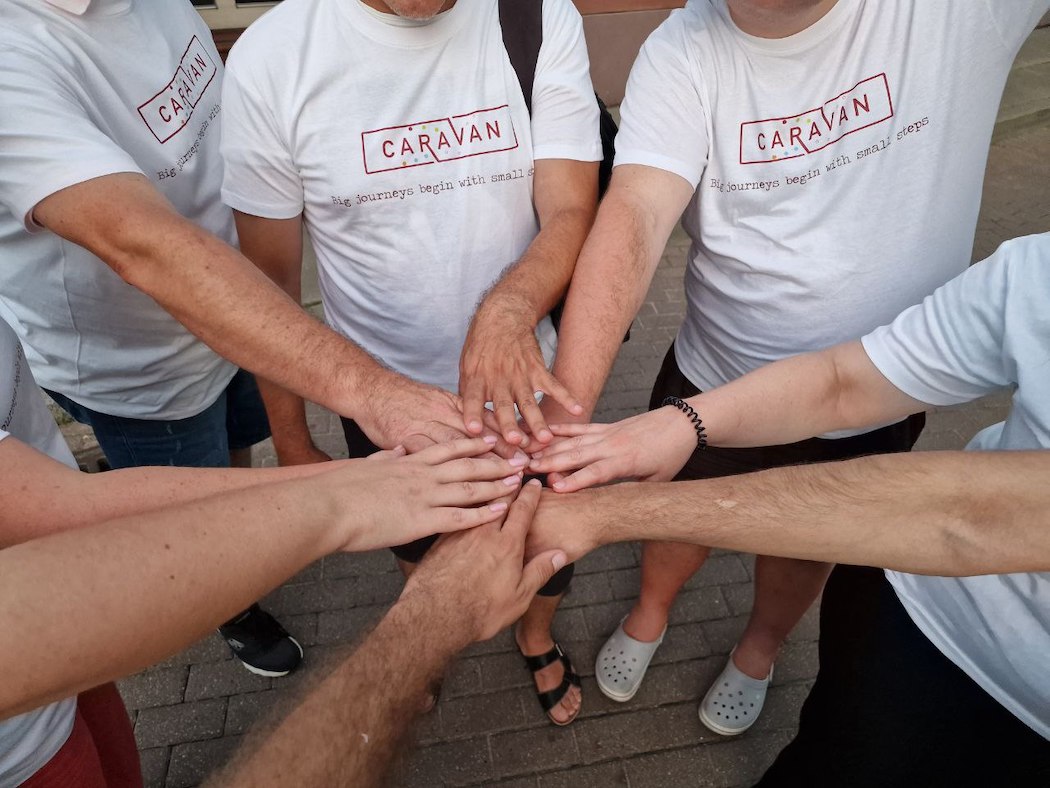The Citizenship Education Caravan completed its work in Lithuania and Poland
During 9 days the Caravan team visited Vilnius, Kaunas, Vilkaviškis, Druskininkai, Bialystok, Suprasl, Tykocin, Treblinka and Warsaw. The final events of the Lithuanian-Polish Caravan took place on 27 August in Vilnius.
There was a lecture on personal data protection, a seminar on the risks of politically motivated persecution in Belarus, and an interactive lecture on how the theme of human rights has been reflected in the history of cinema.
“Personal Data Protection. The right to privacy: international standards” was the title of the interactive lecture by Maria Kolesova-Gudilina, representative of the Belarusian Association of Human Rights Lawyers, PhD, Associate Professor at the Harvard University, human rights lawyer.
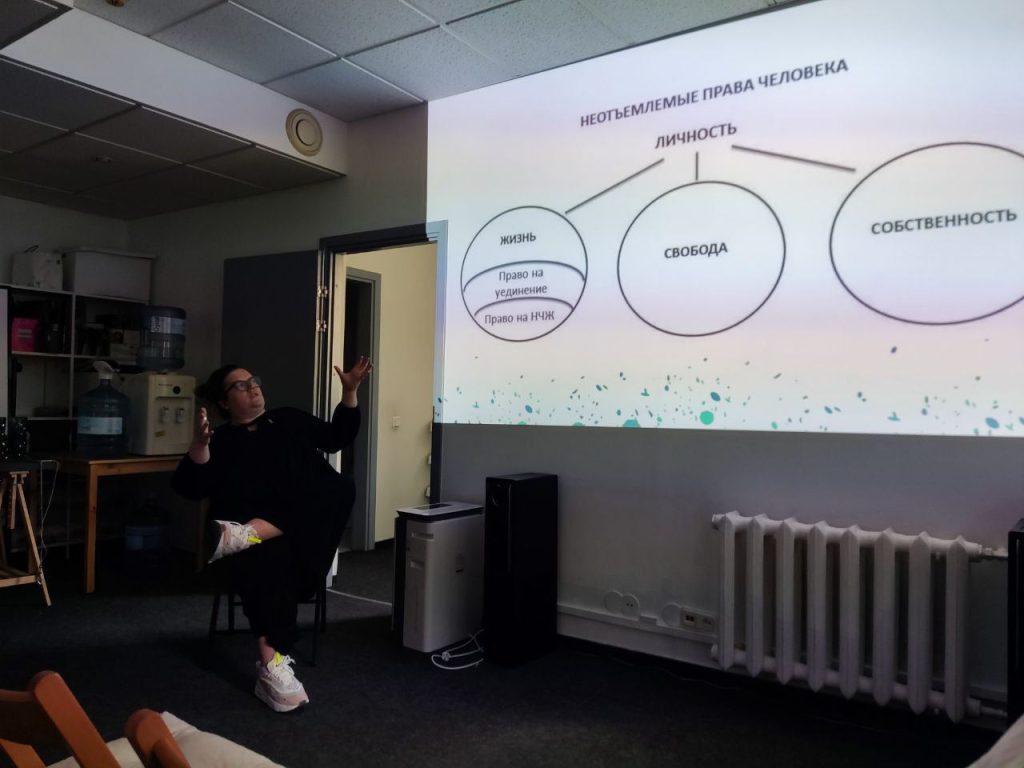
The lecture was dedicated to the international standards of personal data protection in the information society.
The lecturer spoke about the international regulation of personal data protection issues, some aspects of its implementation in Belarusian and Lithuanian law.
The participants of the meeting were able to understand the concept of personal data in accordance with the international acts and documents in force in this field, to consider the main requirements to be complied with when processing personal data in accordance with the international acts and documents in force and the obligations of the states aimed at ensuring their compliance.
Also were discussed the possibilities of applying the international norms protecting the private sphere to the protection of personal data.
At the end of the meeting, conclusions were drawn on the broad understanding of personal data in accordance with the international norms in force, the need to distinguish between pseudonymised and anonymised data, compliance with the minimum general requirements of personal data processing and the behaviour of the subjects of such legal relations.
“Risks of politically motivated persecution in Belarus and ways to minimise them” was the title of another event held jointly with the Belarusian Association of Human Rights Lawyers.
The seminar presented the current approaches of law enforcement agencies to politically motivated prosecution of citizens, which gave an insight into what formal signs are necessary for law enforcement agencies to initiate criminal cases and what evidence becomes a means of criminal prosecution.
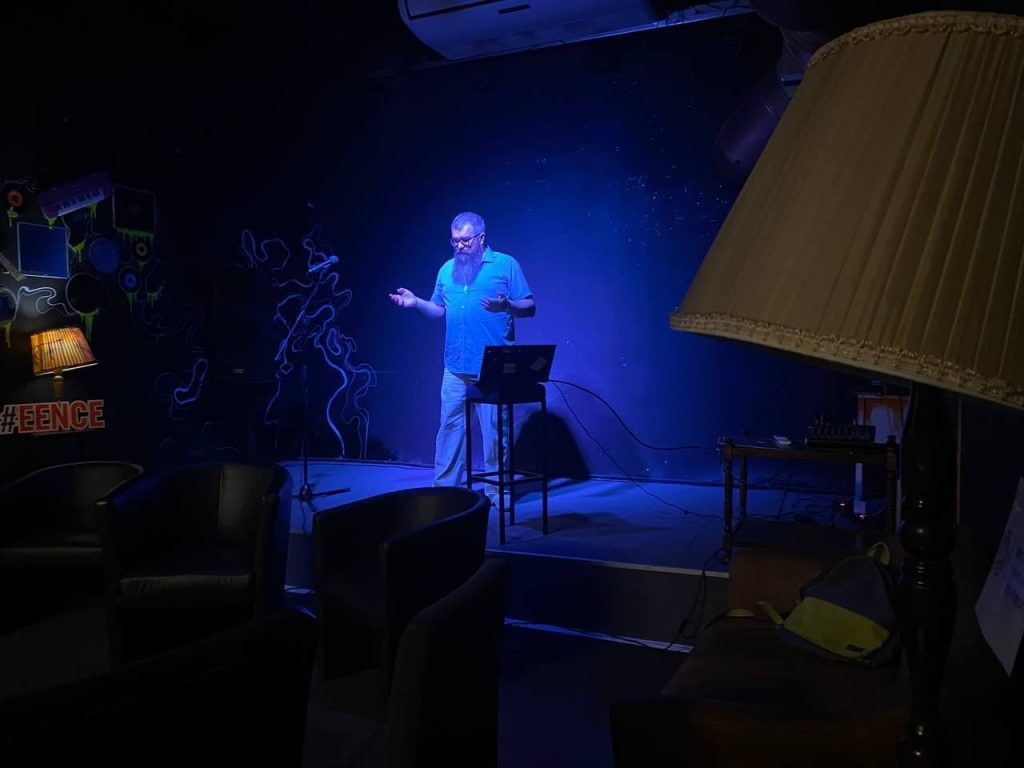
Understanding these fundamentals will help to assess the risks of criminal prosecution. The meeting also included a lively discussion and case studies of the participants.
The Belarusian Association of Human Rights Lawyers in co-operation with other initiatives will continue to participate in the legal education of Belarusians.
The highlight of the final day of the Caravan was a meeting dedicated to films related to human rights topics.
The meeting was moderated by Lukas Kacinauskas, an aspiring film director and screenwriter from Lithuania, and Nazarii Boiarskyi (Ukraine), a human rights activist and informal education trainer.
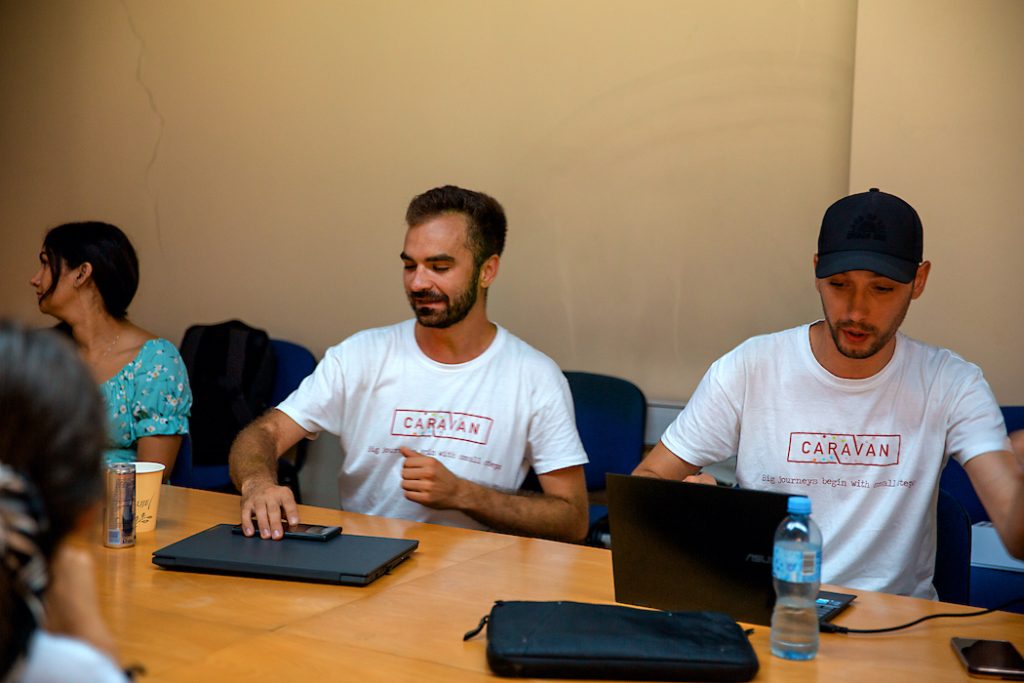
The interactive lecture presented cases on human rights in the history of cinema.
During the lecture, the participants were able to get acquainted with examples and excerpts from films with human rights. A quiz about films with human rights themes was prepared for the participants. Many noted something new for themselves and wrote down the names of films that are still worth watching or revisiting.
At the end of the meeting, a discussion was held on the prospects of using human rights themes in future films.
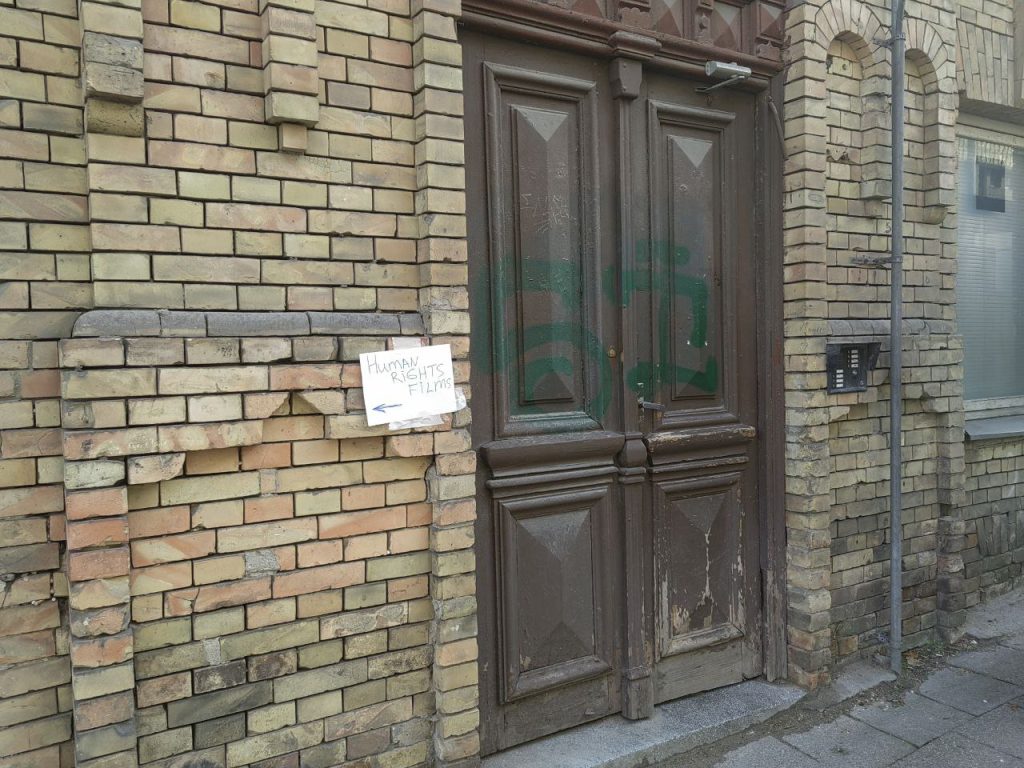
The participants actively engaged in the discussion and presented new films with the use of artificial intelligence, full immersion and the possibility to influence the continuation of the film by the viewer and much more.
Most importantly, the participants emphasised the importance of cinema in promoting human rights and similar events to draw attention to the issue.
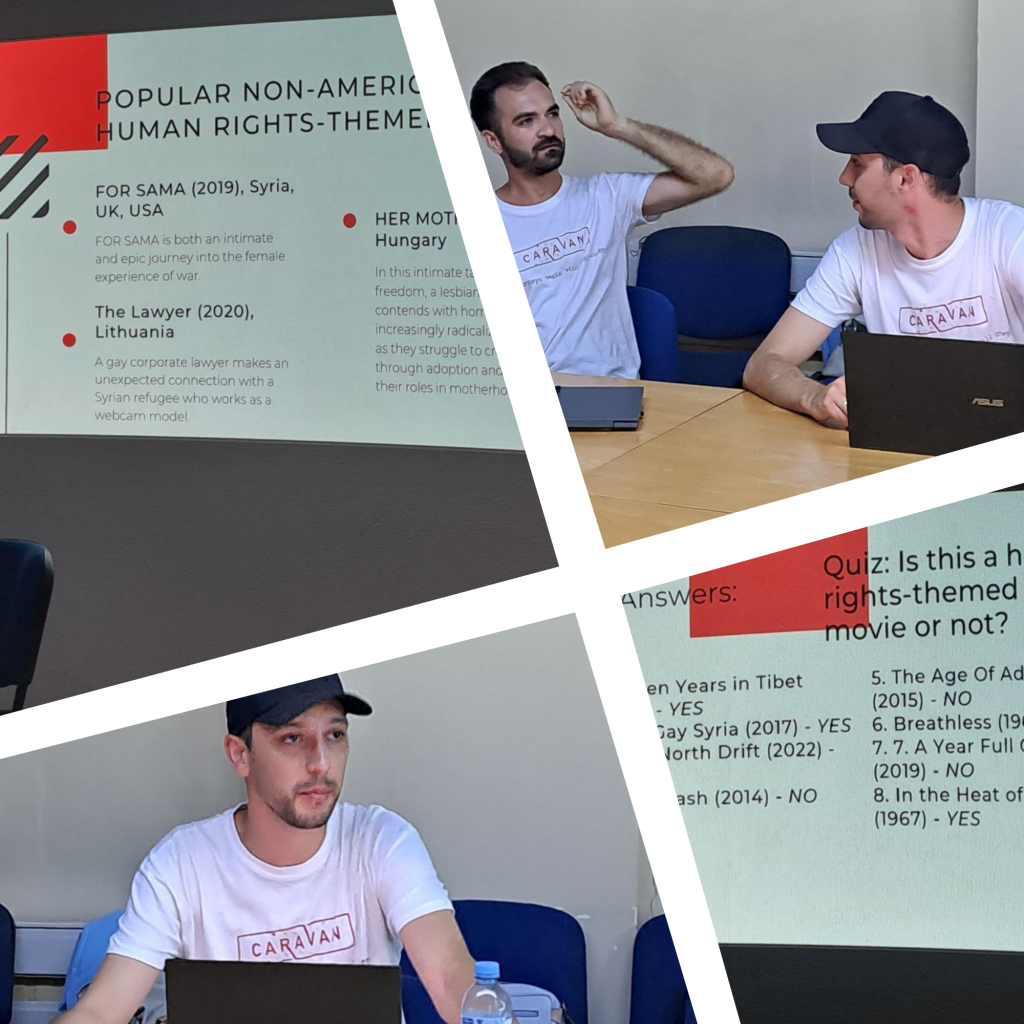
The Citizenship Education Caravan in Lithuania and Poland took place from 18 to 27 August.
During this time, the Caravan team travelled over 1000 km, working in Vilnius, Kaunas, Vilkaviškis, Druskininkai, Bialystok, Suprasl, Tykocin, Treblinka, and Warsaw.
Several hundred people took part in the meetings organised by the “caravan” team. First of all, they were migrants from Belarus and Ukraine, who had left their countries because of political repression and Russian aggression and were now forced to adapt to life outside their homeland.
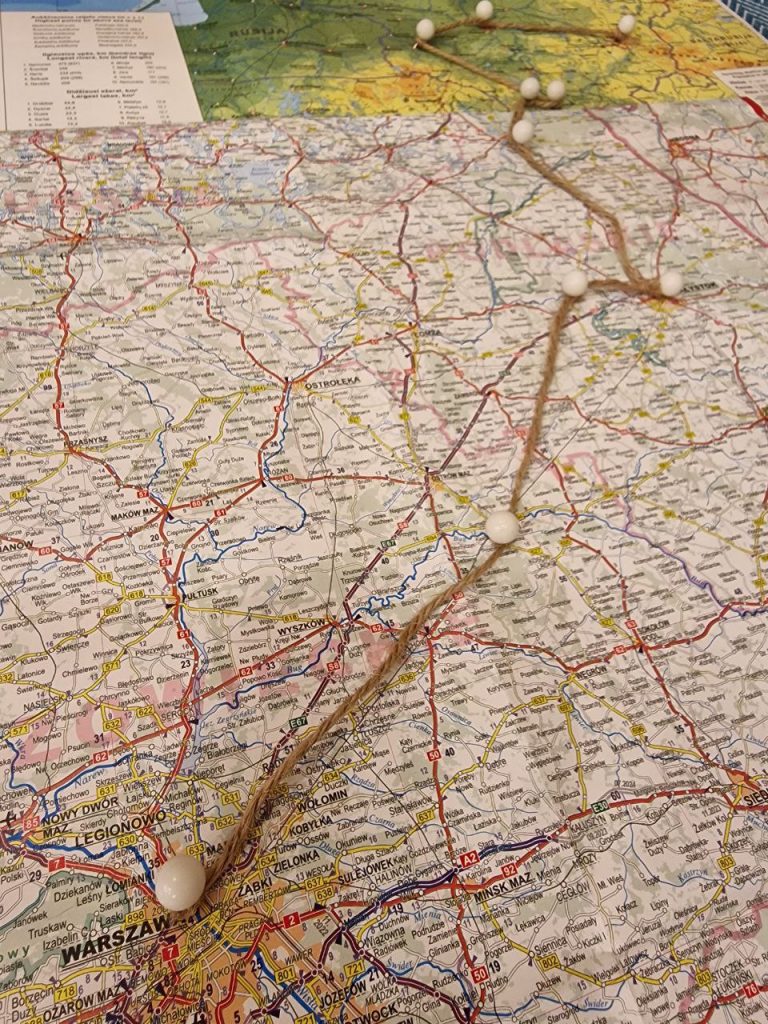
The event is organized by a consortium of EENCE experts and organizations in the framework of the project “EENCE Citizenship Education Caravan”, funded by the Federal Agency for Citizenship Education (Bundeszentrale für politische Bildung / bpb) with funds allocated by the German Federal Foreign Office, program “Enhancing cooperation with civil society in the Eastern Partnership countries and Russia”. The project is implemented by the NGO Incubator of Democratic Initiatives (Ukraine).
Read also:
The next phase of the EENCE Citizenship Education Caravan started in Vilnius
EENCE Citizenship Education Caravan in Lithuania and Poland. Day 2. Vilnius
The EENCE Caravan continues its journey through Lithuania. Day 3. Kaunas and Vilkaviškis
EENCE Caravan team led an online tour of the communist heritage park in Grutas
The EENCE Citizenship Education Caravan has moved to Poland
The Caravan team visited Tykocin and Treblinka
Warsaw became the third capital on the route of the Citizenship Education Caravan
The Citizenship Education Caravan has finished in Poland and is returning to Lithuania

